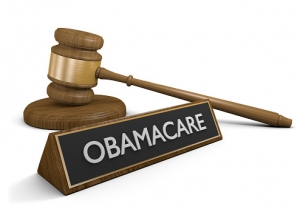Cadillac Tax
The Affordable Care Act (ACA) includes several taxes to fund various parts of the healthcare law, such as Medicaid expansion and Health Insurance Marketplace subsidies. Since the ACA became law, there have been debates in Congress about many of the taxes. Some have argued for repeal, some have argued for change and others have argued for extensions of various tax components of the law.
Posted February 20th, 2018 in Producers, Employers, Individuals
Congress keeps finding ways to include certain healthcare provisions into federal spending bills. A temporary spending bill passed in January included a suspension or delay of the Cadillac Tax, health insurer tax and medical device tax.
Bipartisan efforts (yes, you read that right) are underway to repeal the Cadillac Tax imposed by the Affordable Care Act (ACA). A letter signed by 140 bipartisan members of the House of Representatives (House) urges a repeal this year. Efforts are being led by Congressman Joe Courtney (D-CT-2) and Mike Kelly (R-PA-3).
Posted June 20th, 2017 in Producers, Employers, Individuals
President Donald Trump held a party in the White House Rose Garden to celebrate the passage of the American Health Care Act (AHCA) by the House of Representatives (House). President Trump touted the House bill as being an “incredible health care plan.” The AHCA is now under consideration by the Senate, and in a closed-door meeting held with several Republican Senators last week, President Trump allegedly said the current version of the AHCA is too “mean” and needs to be “more generous.”
Just how "mean" is the AHCA, and who is it "mean" to?
Posted March 8th, 2017 in Producers, Employers, Individuals
On February 24th, Politico got its hands on a rough draft version of a Republican bill that would repeal several key parts of the Affordable Care Act (ACA), and they leaked it to the public. Naturally, Democrats were disgusted by the contents of the bill, but the more interesting thing was even several Republicans said they wouldn’t vote in support of this bill.
The New Year is expected to bring more regulatory changes which will impact employers and group health plans alike. Here are five predictions of things that are likely to happen in 2016.
Posted December 23rd, 2015 in Producers, Employers, Individuals
You may have heard that President Obama recently signed into law the Consolidated Appropriations Act of 2016, a $1.1 trillion spending bill, avoiding a shutdown and funding the federal government through September 30, 2016. The President also signed the Protecting Americans from Tax Hikes (PATH) Act of 2015 which provides nearly $700 billion in tax breaks. Here’s what it means to the Affordable Care Act (ACA) and transit reimbursement plans.
Cadillac Tax
- The Cadillac Tax has been delayed by two years until 2020.
Posted December 4th, 2015 in Producers, Employers, Individuals
The Senate needed 51 votes to pass the Restoring Americans' Healthcare Freedom Reconciliation Act of 2015 (HR 3762), a budget reconciliation bill which would repeal several key parts of the Affordable Care Act (ACA). They got 52 when they voted on December 3rd. The bill, which was previously passed by the House of Representatives (House), was approved by the Senate with some amendments. That means the bill will have to go back to the House for another vote, where most expect it will be passed.
The statutory limit for Health Care Flexible Spending Account (FSA) elections is expected to remain unchanged in 2016. The salary reduction limit was capped at $2,500 in 2013 as a result of the Affordable Care Act (ACA) and is subject to inflationary adjustments. In 2015, the limit was increased to $2,550. However, due to a recent government report issued by the U.S.
It appears that the Internal Revenue Service (IRS) is having some trouble with formulating guidance as it relates to the Excise Tax on High Cost Employer-Sponsored Health Coverage, also known as the Cadillac Tax. Earlier this year the IRS released Notice 2015-16 which sought public comment on the types of coverage that should (or shouldn’t) be included when calculating the value of coverage.










